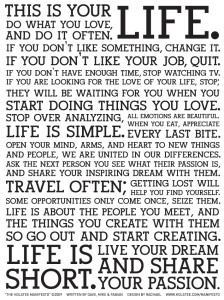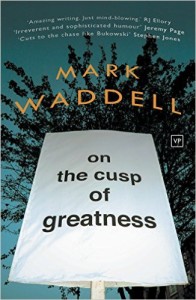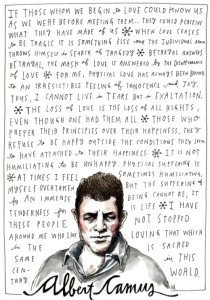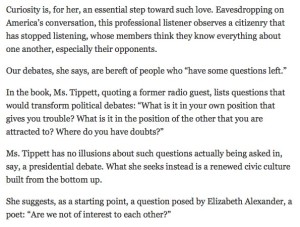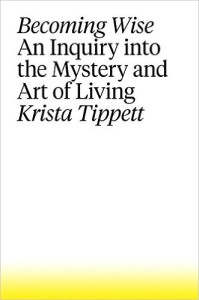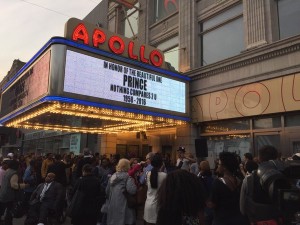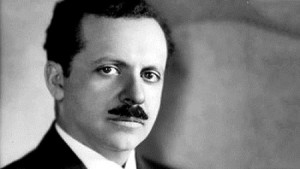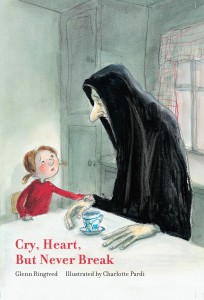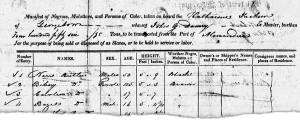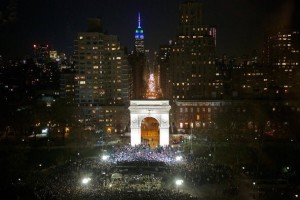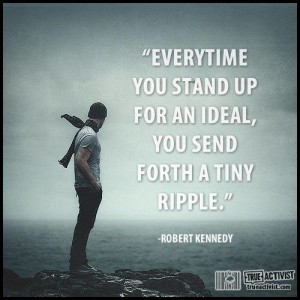~♥~
April 27, 2016The guy behind the signs.
Why did he do it? Just because maybe it would make somebody feel just a little bit better.
‘She was the book he couldn’t put down.’
(Love this story.)
NPR
‘For three years, someone has been putting funny, often inspiring signs on a front stoop in Kentish Town, London. NPR spoke with the man behind the words, poet Mark Waddell.’
http://www.npr.org/2016/04/27/475923604/london-poet-leaves-mysterious-sign-posts-in-kentish-town
Krista Tippett.
April 25, 2016Becoming Wise/An Inquiry into the Mystery and Art of Living
-Krista Tippett (2016)
‘This thing called Life.’
April 24, 2016‘…remind ourselves how good and how important is to be, well, a weirdo, to let your freak flag fly, to live life out loud and proud, to shock the bourgeoisie, to cultivate a social conscience, to make ethical art that is connected to a spiritual purpose, to own your work and to own your name in a culture of commodification, to stay rooted to your beginnings and to practice and master your craft. We’re here to get through this thing called Life…’
Beautiful and complex expose on the life of Prince and his contribution by writer Jason King for NPR.
Prince.
April 21, 2016June 7, 1958 – April 21, 2016
‘Compassion is an action word with no boundaries.’
‘A strong spirit transcends rules.’
‘…in this life, you’re your own crazy. Go crazy.’
Stories are powerful, as is the story teller. Today on twitter, a post shared from The Daily Beast’s Matt Wilstein to remember a special night after the SNL 40th Anniversary Show, in New York City’s The Plaza, as could only be told by someone who shares the passion, compassion, and enthusiasm for music and musicians, Jimmy Fallon. On The Tonight Show the next evening, for millions of us who weren’t invited to the party, Fallon made us feel like we were. And Prince was there.
(Edited on Saturday, April 23rd – – footage released of Prince’s SNL 40th anniversary afterparty performance.)
Character Day.
Sign up!
And here’s a short clip, just released April 26th, about Character Day coming up in September.
Formation of Political Machines
April 20, 2016‘The conscious and intelligent manipulation of the organized habits and opinions of the masses is an important element in democratic society. Those who manipulate this unseen mechanism of society constitute an invisible government which is the true ruling power of our country.
We are governed, our minds are molded, our tastes formed, our ideas suggested, largely by men we have never heard of. This is a logical result of the way in which our democratic society is organized.’
– Edward Bernays
http://www.informationliberation.com/?id=8339
“Adam Curtis’ acclaimed series examines the rise of the all-consuming self against the backdrop of the Freud dynasty.
To many in both politics and business, the triumph of the self is the ultimate expression of democracy, where power has finally moved to the people. Certainly the people may feel they are in charge, but are they really? The Century of the Self tells the untold and sometimes controversial story of the growth of the mass-consumer society in Britain and the United States. How was the all-consuming self created, by whom, and in whose interests?
The Freud dynasty is at the heart of this compelling social history. Sigmund Freud, founder of psychoanalysis; Edward Bernays, who invented public relations; Anna Freud, Sigmund’s devoted daughter; and present-day PR guru and Sigmund’s great grandson, Matthew Freud.
Sigmund Freud’s work into the bubbling and murky world of the subconscious changed the world. By introducing a technique to probe the unconscious mind, Freud provided useful tools for understanding the secret desires of the masses. Unwittingly, his work served as the precursor to a world full of political spin doctors, marketing moguls, and society’s belief that the pursuit of satisfaction and happiness is man’s ultimate goal.”
The Century of Self
‘…when the breeze caressed their faces, they could feel her touch.’
‘The curtains were blowing in the gentle morning breeze. Looking at the children, Death said quietly, “Cry, Heart, but never break. Let your tears of grief and sadness help begin new life.’
What makes the book particularly touching, thanks to Pardi’s immensely expressive illustration, is just how crestfallen — broken, even — Death himself looks the entire time he is executing his mission, choked up with some indiscernible fusion of resignation and recompense.
[…]
To stall the inevitable, the children devise a plan — believing that Death only works at night, they decide to keep refilling his coffee cup until dawn comes, at which point he would have to leave without their grandmother. Here, too, one is struck by the ordinariness of Death, for what can be more ordinary — and life-loving, even — than to enjoy a cup of coffee at the kitchen table?
‘Some people say Death’s heart is as dead and black as a piece of coal, but that is not true. Beneath his inky cloak, Death’s heart is as red as the most beautiful sunset and beats with a great love of life.’
Maria Papova
Brainpickings
Cry, Heart, But Never Break: A Remarkable Illustrated Meditation on Loss and Life
Future of Journalism
April 19, 2016NYTimes
‘…the future of news and information, what’s next for our democracy? President Kardashian?’
[…]
Those drier articles may not score in the ratings, but they can lead to the bigger ones. Watergate started as a story about a burglary. The wide-ranging sex abuse scandal in the Catholic Church that The Boston Globe exposed — captured in the movie “Spotlight” — began as a 700-word column about a single priest.
Once ratings come into the picture, will reporters still want to pursue those smaller stories? And will their editors, who once called these stories “spinach,” want to publish them?
The answer from Mr. VandeHei and like-minded news executives is yes, but it’s incumbent upon news organizations to do a better job with them — make them shorter and more distinctive, with data and striking visual presentation.
Spike Lee for Bernie.
April 18, 2016‘Wake up!’
…to ensure the survival of America’s representative democracy: that government of the people, by the people, for the people, shall not perish from the earth.
Cat.
‘Humankind branching into beautiful races, languages & colours is a blessing & should encourage respect of each other.’
-Ysuf/Cat Stevens
‘…the task of making amends.’
April 16, 2016NYTimes
—
‘272 Slaves Were Sold to Save Georgetown. What Does It Owe Their Descendants
More than a dozen universities — including Brown, Columbia, Harvard and the University of Virginia — have publicly recognized their ties to slavery and the slave trade. But the 1838 slave sale organized by the Jesuits, who founded and ran Georgetown, stands out for its sheer size, historians say.
At Georgetown, slavery and scholarship were inextricably linked. The college relied on Jesuit plantations in Maryland to help finance its operations, university officials say. (Slaves were often donated by prosperous parishioners.) And the 1838 sale — worth about $3.3 million in today’s dollars — was organized by two of Georgetown’s early presidents, both Jesuit priests.
[…]
“This is not a disembodied group of people, who are nameless and faceless,” said Mr. Cellini, 52, whose company, Briefcase Analytics, is based in Cambridge, Mass. “These are real people with real names and real descendants.”
Within two weeks, Mr. Cellini had set up a nonprofit, the Georgetown Memory Project, hired eight genealogists and raised more than $10,000 from fellow alumni to finance their research.
Dr. Rothman, the Georgetown historian, heard about Mr. Cellini’s efforts and let him know that he and several of his students were also tracing the slaves. Soon, the two men and their teams were working on parallel tracks.
What has emerged from their research, and that of other scholars, is a glimpse of an insular world dominated by priests who required their slaves to attend Mass for the sake of their salvation, but also whipped and sold some of them. The records describe runaways, harsh plantation conditions and the anguish voiced by some Jesuits over their participation in a system of forced servitude.
“A microcosm of the whole history of American slavery,” Dr. Rothman said.
The enslaved were grandmothers and grandfathers, carpenters and blacksmiths, pregnant women and anxious fathers, children and infants, who were fearful, bewildered and despairing as they saw their families and communities ripped apart by the sale of 1838.
The researchers have used archival records to follow their footsteps, from the Jesuit plantations in Maryland, to the docks of New Orleans, to three plantations west and south of Baton Rouge, La.
Apocalypse soon.
April 15, 2016Seth Godin
It’s a bug in our operating system, and one that’s amplified by the media.
I’m listening to a speech from ten years ago, twenty years ago, forty years ago… “During these tough times… these tenuous times… these uncertain times…” And we hear about the urgency of the day, the bomb shelters, the preppers with their water tanks, the hand wringing about the next threat to civilization.
At the same time that we live in the safest world that mankind has ever experienced. Fewer deaths per capita from all the things that we worry about.
Risky? Sure it is. Every moment for the last million years has been risky. The risk has moved from Og with a rock to the chronic degeneration of our climate, but it’s clear that rehearsing and fretting and worrying about the issue of the day hasn’t done a thing to actually make it go away. Instead, we amplify the fear, market the fear and spread the fear as a form of solace, of hiding from taking action, of sharing our fear in a vain attempt to ameliorate it.
When we get nostalgic for past eras, for their culture or economy or resources, it’s interesting that we never seem to get nostalgic for their fears.
‘The enemy is fear. We think it is hate; but it is fear.’ -Gandhi
He changed the debate.
This is the political revolution – – 27,000 people rally for BERNIE in New York City.
- Get out the VOTE.
- Protect voting rights.
- Rid politics of big money.
Whatever happens at the conventions, or in November, one guy changed the debate and activated hundreds of thousands young voters to mobilize, protect voting rights, and get big money out of politics.
Forward.
#ActOfHumanity
April 6, 2016Global Citizen
The Syrian Civil War has created more than 4.7 million refugees and displaced another 6.7 million people inside the country. In total, more than 13.5 million people need assistance in the country.
8.4 million of these people are children. Over the past 5 years, too many of them have suffered profoundly.
The #ActOfHumanity animation above by UNICEF tells a representative story of one boy’s actual experience.
https://www.globalcitizen.org/en/content/watch-an-animated-tale-of-1-syrian-refugee-boys-2/
They didn’t riot in Indy that night.
April 5, 2016April 4th, 1968.
